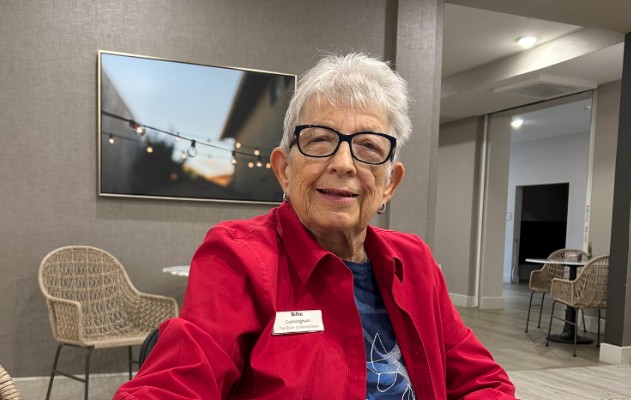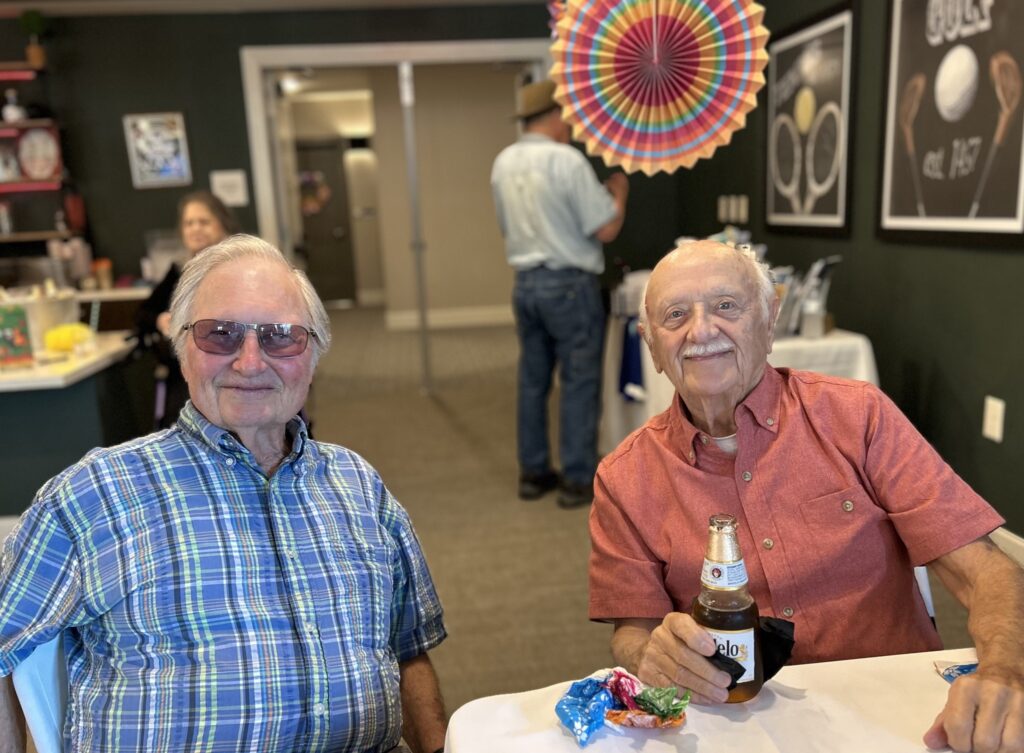
Early Shifts in Routine That May Point to a Senior Care Transition
1. A shift in daily rhythm
- Forgetting appointments they used to remember
- Calling at odd hours, unsure of the time
- Pausing mid-task with hesitation
What it might be saying:
“I’m trying to stay on track, but time is starting to feel unfamiliar.”
- Emotional responses that feel “off”
- Irritation in conversations that used to feel easy
- Anxiety in settings they once enjoyed
- Quiet withdrawal from routines they loved
What it might be saying:
“Something feels different, but I can’t explain it — and that frustrates me.”
- Safety adaptations that weren’t there before
- Avoiding stairs, showers, or certain rooms
- Double-checking doors, lights, or appliances
- Waiting for cues before acting
What it might be saying:
“I’m still managing — but I’m doing it more carefully, and sometimes uncertainly.”
- Small tasks becoming big moments
- Holding objects without starting the task
- Dressing in unusual combinations
- Asking for help with things they once did automatically
What it might be saying:
“I know what to do… but I can’t quite connect the steps.”
Pause and reflect:
You don’t need a checklist to know when something feels different.
But if two or more of these signs sound familiar, it may be time to ask a new kind of question — not “Can they still do this?” but “How are they experiencing this?”
Because when you start noticing the soft signals, you’re not just spotting change —
you’re listening. And that’s the first step toward the kind of care that truly honors who they are.
How Everyday Help Becomes a New Kind of Care
It doesn’t start with a decision — it starts with a pattern.
Most caregiving roles don’t begin with a formal conversation.
They begin with a simple gesture:
“I’ll stop by and help with the groceries.”
“Let me take care of your meds for the week.”
“I’ll call and remind them about the appointment.”
At first, it feels like help. Supportive. Occasional. Manageable.
But slowly, quietly, the dynamic shifts — and you realize that you’ve stepped in without ever stepping back to notice.
Here are a few ways to recognize that your role may already be evolving into something deeper:
🧾 1. You’re managing their to-do list before your own
- You find yourself scheduling their appointments before your own
- You check their fridge, bills, or calendar as part of your routine
🟢 This isn’t just “help” — it’s coordination.
🧭 2. You adjust how you communicate
- You simplify explanations to avoid confusion
- You pause before asking certain things, anticipating their reaction
🟢 You’re no longer just sharing — you’re translating life into something safer, calmer, more digestible.
🛠 3. You’re problem-solving on autopilot
- You anticipate needs they haven’t named
- You step in when something “feels off,” even if they say they’re fine
🟢 You’ve become the safety net — quietly and instinctively.
💡 4. You filter what you say to others
- You tell friends or family, “they’re doing okay”, even when you know it’s getting harder
- You protect their privacy — and their dignity — in subtle ways
🟢 You’re not just involved. You’re emotionally invested.
📍 If any of this feels familiar…
It might mean you’re already in a caregiving role — not because you chose it, but because love, intuition, and responsibility led you there.
Recognizing this shift isn’t about labels.
It’s about giving yourself the language and support that matches the reality you’re already living.
Because when caregiving is unnamed, it often goes unsupported.
And naming it doesn’t change the love — it simply opens the door to resources, guidance, and balance.

The Quiet Transition Behind Every Assisted Living Move
Before the decision is made, something deeper is already shifting.
Assisted living is rarely about a single moment.
It’s not the fall.
Not the doctor’s advice.
Not the stack of unopened mail on the kitchen counter.
Those might spark action — but the transition begins long before that. Quietly. Internally. Sometimes invisibly.
What unfolds first is emotional. A landscape of subtle realizations, private hesitations, and quiet redefinitions of what care, independence, and presence really mean.
Let’s explore this transition — not as a checklist, but as a human arc many families experience beneath the surface:
🌙 1. The Noticing Phase
You start picking up on little things:
- A forgotten appointment
- A hesitation before answering
- A pause on the stairs that never used to happen
Nothing feels urgent — but something feels different.
And that difference lingers.
🫶 2. The Emotional Tug-of-War
You tell yourself:
“They’re still managing.”
“Everyone slows down eventually.”
“Maybe it’s just a rough week.”
But there’s a quiet awareness growing — that support may need to look different soon.
This is where the real inner shift begins.
🪞 3. The Mirror Moment
You stop asking, “Are they okay?”
And you start asking, “Am I doing more than I used to?”
It’s no longer about observation — it’s about recognition.
Your role has changed. The rhythm of your relationship has changed.
And you’re feeling it.
🧭 4. The Mental Reframe
This is where clarity begins.
You stop looking at assisted living as something that happens after something goes wrong —
and start seeing it as something that could support what’s still going right.
The mindset shifts:
From “giving something up”
➡️ To “preserving what matters most”
🌿 5. The Gentle Step Forward
You start exploring. Quietly.
Maybe a tour. Maybe a conversation with your siblings.
Maybe just sitting with the idea and letting it breathe.
And that’s the beauty of this transition — it doesn’t rush.
It unfolds.
How the Right Assisted Living Move Begins Long Before the Checklist
The most important decisions don’t begin on paper.
They begin in quiet moments of reflection — when you start to sense that something is shifting.
At The Oscar at Georgetown, we understand that the journey toward Assisted Living is rarely triggered by a single event. It unfolds gradually: in subtle hesitations, changing routines, and new emotional landscapes.
That’s why we believe the right time to consider a move is before it feels urgent — when there’s still space to choose with clarity rather than react under pressure.
📊 In fact, studies show that families who explore Assisted Living options early report significantly lower stress, more stable health outcomes, and higher satisfaction after the transition (National Institute on Aging, 2023).
🧭 What does “early” look like in real life?
- You find yourself supporting your loved one a little more each week.
- You’re wondering if they’d feel safer — and freer — with the right kind of care.
- You’re imagining a life with less worry and more connection.
Here, those thoughts aren’t just valid — they’re welcome.
We’ve built a community where thoughtful transitions are honored, not rushed. With proactive care, smart-living features like Alexa and Speak2, and wellness partners like Curana, we’re redefining what it means to age with intention.
💬 Final reflection
If you’re asking yourself when the right time might be, it means you’re already listening.
And listening is how every meaningful step begins.
Let us walk with you — long before the checklist begins.
This chapter doesn’t ask for sacrifice.
It asks for clarity.
It invites a lifestyle that honors the past, adapts to the present, and protects what’s still to come.
So, when is the “right” time?
Maybe it’s not a date on the calendar.
Maybe it’s this very moment — when your heart knows it’s time to listen more closely, act more gently, and choose a future built not on urgency… but on intention.








